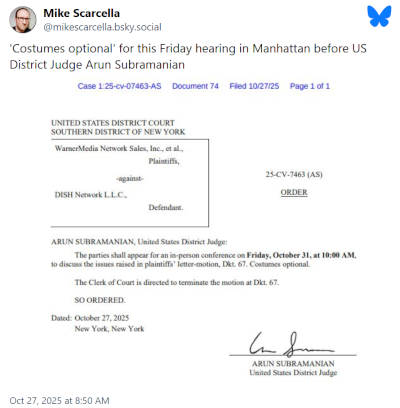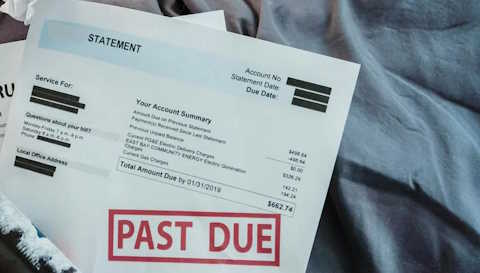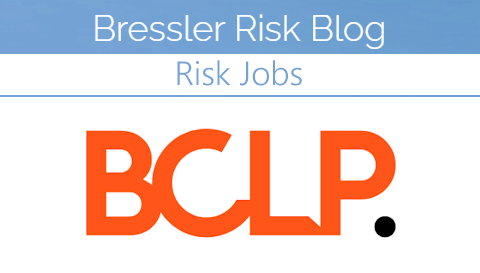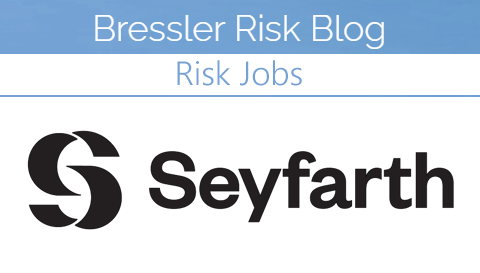Scary Risk (Halloween Edition) — Lateral Leaver “Liability Nightmare,” Lawyer “Costume” Risk, Verein Structure Not Stopping Malpractice Matter, Cyberattack Security Stories, Professional Liability Claims Data
Posted on
“‘Website Time’: The Big Law Phenomenon That Could Lead to a Liability Nightmare” —
- “Jumped or pushed? In today’s world it is difficult to tell whether a lawyer leaves a law firm of their own accord or is shown the door. This uncertainty extends to the hiring market where firms recruiting associates or partners may think they’ve made a wise choice, when in reality their sparkly hire had been asked to leave their previous employer. This confusion owes in part to the rising phenomenon known as ‘website time’.”
- “Website time is the period that a lawyer’s profile remains on a law firm’s website even in the months after they’ve ceased practising with their firm. It enables lawyers to appear as if they’re still active and are leaving out of choice, avoiding the need to explain to recruiters and prospective employers either the circumstances of their departure or the dreaded gap in their work history.”
- “But law firms benefit too. According to sources, some firms are offering website time instead of having to pay out a lawyer’s notice period. Though the practice is ‘widespread’, law firm insurers and other insiders explain to Law.com how website time can expose firms to potential fraud and dishonesty claims, and could even limit their ability to turn to their insurers where disputes arise.”
- “There is a growing sense in Big Law that once you are off a law firm’s website you will struggle to find a job… ‘A profile absence of more than the usual notice periods raises unwanted questions, and gives other firms the impression that you were not wanted.’ A recruiter said that once a lawyer was off a website that ‘they were instantly less valuable.'”
- “But website time helps address this anxiety. It keeps you ‘active’, notwithstanding the fact that your employment has ended in a less than desirable manner.”
- “One senior partner at a U.S. firm in London said that you could offer associates website time in lieu of a paid notice period, thereby giving them longer to try and find a job but also keeping money in the pocket of the firm.”
- “Despite its benefits to the parties involved, website time raises an ethical question. Jeff Cunningham, an outside general counsel for law firms at U.S. based firm Cohen Vaughan, said: ‘It’s clearly misleading to the public, it invites confusion for the client when they think they’re being represented by someone else.’ Cunningham also pointed to issues such as conflict of interest and law firm insurance.”
- “He suggested that the practice was unlikely to change until law firms felt it in their pocket, adding that the relative weakness of the legal services regulators, both in the U.K. and the U.S. meant that the people with the real power are the insurers. Cunningham said: ‘It’s a long time for law firms to have someone on the website [six months] and that’s a big liability.'”
- “A legal insurance specialist at a leading U.K. legal insurer told Law.com that ‘if a client asked me about this, the moment a person ceases to be employed, they should come off the website… You would think in a well run firm, they would keep the website bang up to date. The danger is if you’re on the website and not on the books.'”
- “The insurer added that it was a grey area that had yet to be challenged in the insurance realm. But he could foresee difficulties for law firms.”
- “Theresa Panesky, west region leader of the claims and legal group at insurer WTW, said: ‘If a lawyer who is no longer employed holds themselves out as affiliated with the firm, and the firm is named in a claim, coverage issues could arise. An insurer might be likely to argue that the conduct was outside the scope of the attorney’s role at the firm, and therefore not covered.'”
“Judge Allows Malpractice Lawsuit Against Baker McKenzie to Move Forward” —
- “Global law firm Baker McKenzie is facing renewed legal scrutiny after an Illinois judge allowed a legal malpractice lawsuit to proceed against the firm and its Moscow affiliate, Baker & McKenzie CIS Ltd. The case, filed by London-based investment firm Lehram Capital Investments Ltd., accuses the firm of negligence, conflicts of interest, and mishandling of crucial litigation tied to a disputed coal mining venture in Russia.”
- “The dispute centers on Lehram’s 2013 acquisition of a coal mine in Russia’s Kemerovo region — an area known for its energy resources and complex local political ties. Lehram alleges that soon after the purchase, one of its directors was detained by Russian authorities and pressured to sign documents transferring the mining asset to a company allegedly linked to the powerful Shchukin family, which the plaintiff claims has close connections to regional government figures.”
- “Lehram retained Baker McKenzie’s Moscow office to help recover the mine and address what it characterized as an unlawful seizure of its property. The lawsuit claims that the firm, despite its global brand and integrated marketing, failed to deliver the competent representation expected from an international law firm of its stature.”
- “In its complaint, Lehram accuses Baker McKenzie and its Russian affiliate of professional negligence and breach of fiduciary duty. The allegations include filing the recovery claim in the wrong court — a procedural error that allegedly doomed Lehram’s case from the start. According to the suit, Baker lawyers chose to file in a civil court that imposed a 10-day limitation period instead of pursuing arbitration, which would have offered a three-year filing window. As a result, Lehram’s claim was dismissed as time-barred, effectively preventing the company from reclaiming its lost asset.”
- “Lehram also contends that Baker McKenzie failed to disclose significant conflicts of interest, including prior relationships with Russian government-connected clients. The firm is further accused of exposing Lehram representatives to risk by introducing them to individuals allegedly tied to criminal groups during the course of the representation.”
- “Baker McKenzie, which operates globally through a Swiss verein structure — meaning its various offices are legally independent entities — has argued that its Moscow affiliate acted autonomously. The firm sought to dismiss the lawsuit on jurisdictional grounds, asserting that the case should be heard in Russia, where the events occurred, or alternatively in London, where Lehram is based.”
- “On October 17, 2025, Judge John Tully Jr. of the Circuit Court of Cook County, Illinois, denied Baker McKenzie’s motion to dismiss the case, allowing Lehram to move forward with discovery. The court found that Lehram had presented sufficient evidence to suggest that Baker McKenzie’s global offices might operate with more interconnection than the verein model publicly suggests.”
- “The case highlights ongoing legal and ethical challenges faced by international law firms operating under the verein model, where member firms share branding, marketing, and resources but claim separate legal liability. While the verein structure offers flexibility for managing global operations, courts in the United States have increasingly scrutinized whether such distinctions truly shield parent entities from liability.”
- “Legal analysts say the Lehram v. Baker McKenzie case could have significant implications for malpractice risk management, especially for firms that market themselves as ‘seamlessly global’ while maintaining legally distinct partnerships. The outcome may clarify how far U.S. courts are willing to extend liability to global firms when their affiliates allegedly fail clients abroad.”
- “If Lehram ultimately prevails, the case could set a precedent allowing plaintiffs to hold major U.S.-based law firms accountable for malpractice committed by their international branches — particularly when evidence shows the firms function as integrated global operations rather than independent local partnerships.”
- “The case underscores a growing risk for international law firms: the possibility that courts in their home jurisdictions may hold them liable for actions by affiliates operating abroad, particularly when firms promote themselves as unified global organizations.”
“Cybercriminals are going after law firms’ sensitive client data” —
- “Regardless of their size, all law firms hold valuable data, including client communications, financial records, and confidential legal strategies. That data has never been more at risk. Cybercriminals are targeting law firms by exploiting vulnerabilities, weak passwords, outdated systems, and untrained staff.”
- “The FBI warned U.S. law firms about the Silent Ransom Group, which has been active since 2022. The group breaks into networks, steals client data, and demands payment while threatening to leak or sell the information. Since March 2025, it has moved from callback phishing campaigns that impersonated companies like Duolingo to vishing, where attackers pose as IT staff to get employees to install remote access tools such as Zoho Assist or AnyDesk.”
- “The UK’s Legal Aid Agency disclosed a data breach that exposed sensitive case information, showing that government-backed legal organizations face the same risks as private firms. The breach forced the agency to take digital services offline, stopping online applications, payments to legal aid providers, and case processing.”
- “Law firms are also finding themselves in the crosshairs of cyberattacks linked to foreign governments. Nation-state actors see the sensitive client and corporate information law firms hold as strategically valuable, making them prime targets for espionage and data theft. “
“Quandaries & Quagmires: Risky business: Professional liability claims” —
- “The American Bar Association’s Standing Committee on Lawyers’ Professional Responsibility recently published an update to its Profile of Legal Malpractice Claims (‘ABA Study’) providing data related to professional liability claims from 2020-2023, based on data from professional liability insurers who shared data with the study. An important limitation to the study is that big law is generally not represented. A separate study conducted by Eileen Garczynski at EPIC Law Firm Group polled 11 professional liability insurers that combined provide coverage to more than 80% of AM Law 100 and NLJ 250 firms (‘EPIC Study’).1 Additionally, Doug Richmond and Andrew Ricke recently compiled information from two leading insurers of large and midsize firms and reported the data anonymously (‘Lockton Report’).2 Finally, Minnesota’s Office of Lawyers Professional Responsibility published its Annual Report providing insight into disciplinary trends. Collectively, the studies/reports will be discussed to illustrate risk variations among those surveyed and tips to minimize risk will be provided.”
- “According to the 2020-2023 ABA Study, the riskiest practice areas experiencing the highest number of claims are (1) estate, trust, and probate; (2) real estate; (3) personal injury – plaintiff; (4) family law; (5) collections and bankruptcy; (6) business transaction commercial law; (7) patent, trademark, and copyright; (8) corporate/business organization; (9) labor law; and (10) criminal law.3 For context, estate, trust, and probate increased in risk from its previous fourth-place ranking to now atop the leaderboard. This shift in frequency is attributed to the aging population and the highest transfer of wealth comparatively to any other time in the United States.4 Likewise, labor law and patent, trademark, and copyright claims increased by approximately 2.6%.”
- “Conversely, criminal lawyers experienced a decrease in claims by 2.2% compared to the 2019 study, as did person injury – plaintiff lawyers (3.58%), family law claims (2.79%), and collections and bankruptcy claims.5”
- “Five actions (or inactions) have consistently remained the top five activities giving rise to claims. They are: (1) preparation, filing transmittal of documents; (2) commencement of action/proceeding; (3) advice; (4) pre-trial or pre-hearing; and (5) settlement negotiation.12 Substantive errors are the largest error category alleged in claims and include failing to know and/or apply the law, drafting errors, conflicts, inadequate discovery/investigation, failure to know/ascertain a deadline, failure to understand/anticipate tax, errors in public record search, and errors in mathematical calculation.13 Administrative errors follow and include failing to calendar properly, clerical errors, failing to react to calendar, failure to document—no deadline, procrastination, and lost file.14 Client relations errors follow, with intentional wrongs claims as the least frequently made claim.”
“Lawyers are much more likely to experience a claim because they failed to commence an action in a timely matter (up 2.73%), had a drafting error (up 3.99%) or engaged in a conflict of interest (up 2.89%).15”
“SDNY Judge Tells Biglaw Lawyers ‘Costumes Optional’ For Friday Hearing” —
- “On Friday morning, lawyers from Weil Gotshal and Steptoe, facing off in WarnerMedia Network Sales v. DISH Network L.L.C., will convene at the Southern District of New York courthouse for a morning meeting with Judge Arun Subramanian. It’s your standard, sign-of-our-times media feud: Warner has a deal allowing DISH to air Warner programming, but DISH packaged some of that content so it could be purchased on a day-to-day or week-to-week basis through SlingTV and Warner isn’t happy about it. It’s a ‘can the roommate keep using the Netflix account we got for the house?’ situation ramped up to corporate boardroom level.”
- “A Friday hearing is pretty normal. But Friday is Halloween, so the judge has one special trick for the parties.”

- “Here’s the thing about the words ‘Costumes optional.’ It may seem ‘optional,’ but that reads a whole lot like a dare. Do you want to show up in business attire when the other side agreed to the judge’s whimsical invitation? Is there some junior associate at Weil billing .3 to ‘Trip to Spirit Halloween’ for a David S. Pumpkins suit right now?”
- “The odds are probably right around the same as an appearance of the Great Pumpkin. That said, if any litigation could bring out a little lawyer cosplay, it would be one involving media companies. We [Above the Law] reached out to both Weil and Steptoe to ask if they had any reaction to the order, but have not heard back. We will update if either decides on a costume.”
“To demonstrate the parties’ good faith negotiation powers, maybe the lead attorneys could coordinate and arrive in a Vincent Gambini maroon tuxedo and an Elle Woods pink Jackie Kennedy outfit? Unfortunately, My Cousin Vinny is a 20th Century Fox production and it might be more gauche than the tuxedo for Warner’s attorney to show up as a rival studio’s character.”









